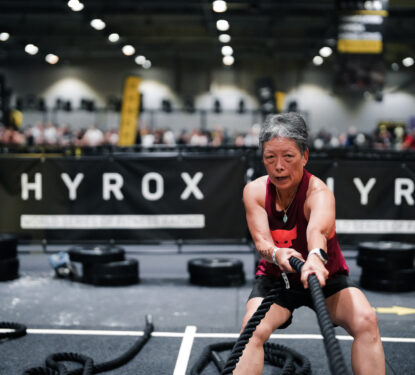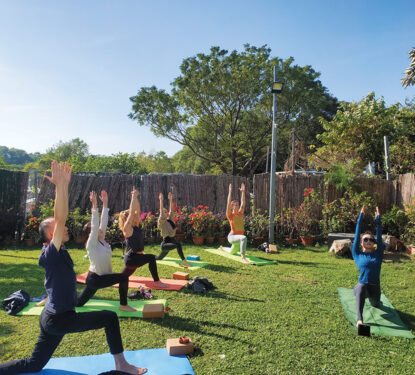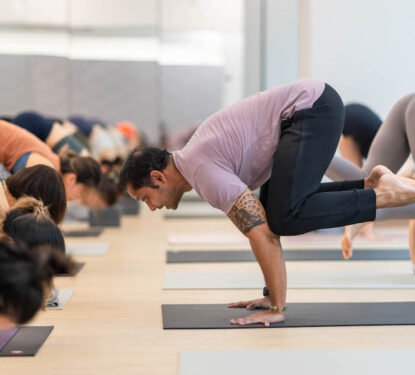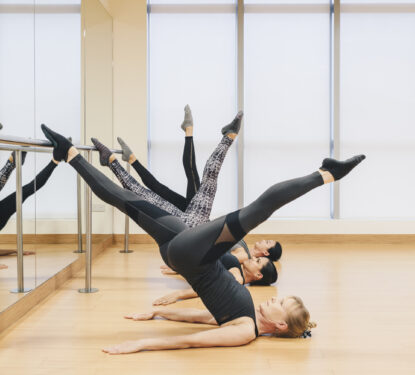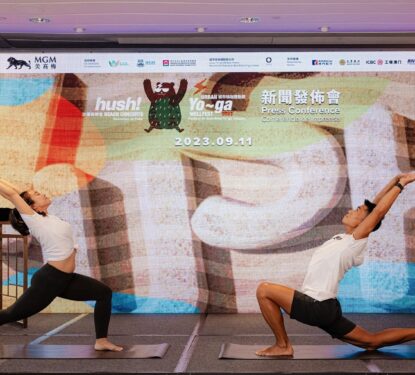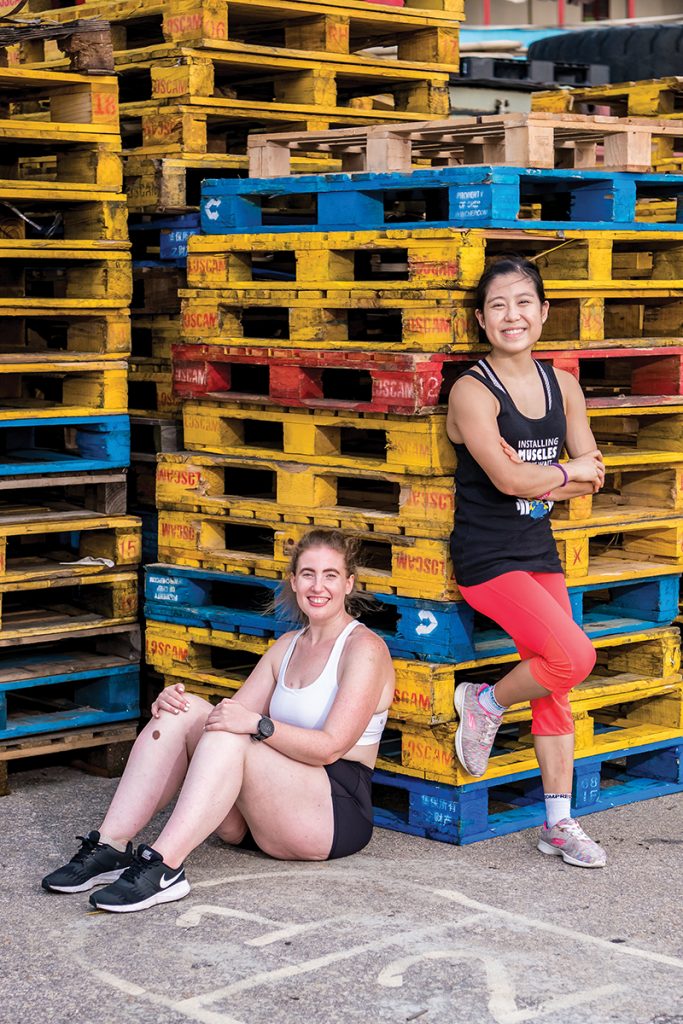
While many fitness fans in Hong Kong remain committed to achieving Instagram perfection, there’s a growing movement towards body positive fitness, which celebrates what your body can do, not how it looks. By Kate Farr. Photos by Ike Li.
In a city as fast-paced and image-conscious as Hong Kong, it’s little wonder that many struggle with body image issues. Ads for slimming centres, images of impossibly slender models plastered on buses and on the MTR, and a severe lack of clothing options for larger sizes all drive home the message that thin is in.
But there’s a nascent trend, partly inspired by the body positive fitness movement in the UK, that rejects the idea that fitness and a rail-thin body shape go hand-in-hand. Rather than trying to reach a “target weight,” slimming down to fit a certain pair of jeans, or punishing yourself for eating that slice of cake, people are instead celebrating their amazing bodies at any size with empowering workouts that inspire rather than shame. Community-focused workouts such as CrossFit and The Women’s Five race place the focus squarely on fun, friendship and health, not numbers on a scale.
Karen Leung of Mindful Pilates believes that setting realistic long-term goals is a key step towards developing a healthier relationship with fitness. “There’s a ‘fast food’ culture in exercise. People look for a short cut, jumping straight into difficult exercises while looking for that ‘burn’, without realising that they are at risk of injury. If students are truly looking for the health benefits of exercise, I believe they should focus more on the quality of their movements, rather than weight loss.”
Leung also believes that being honest about the motivation behind a new fitness regime is important. “Is it truly for yourself, or is it because you care how others see you? The priority should be on mental and physical health, rather than looks.”
Chiropractor and Pilates instructor Dr Fleur Castlereagh of Central’s UP!Health also encourages a reality check, particularly when taking inspiration from online. “Unfortunately, the Instagram culture of fitness fanatics with six-packs and bulging biceps has created an unrealistic expectation for the average person trying to get fit and healthy… but don’t judge a book by its cover; just because someone has defined abs and a toned body doesn’t mean they are the picture of health.”
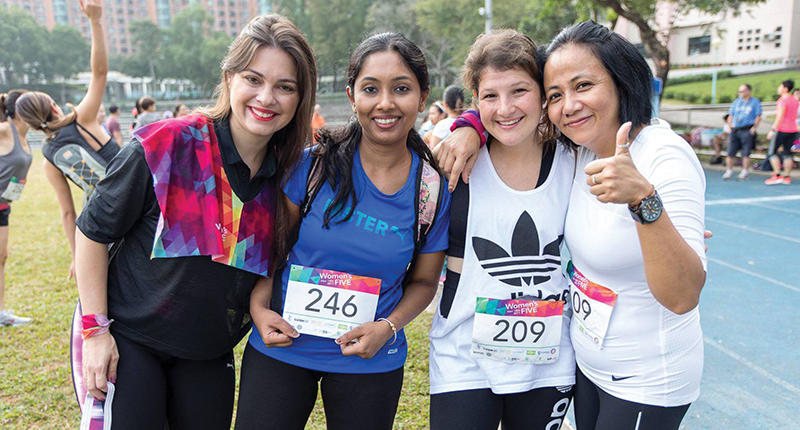
This viewpoint is shaped by Castlereagh’s own experience as a former athlete back in Australia. “I struggled with maintaining a healthy weight for a long time as my coaches wanted me to be very lean. I tried every diet imaginable and became very frustrated as my weight was always up and down. After a while I realised that I was better off just focusing on living a balanced life. I haven’t weighed myself for many years now and I don’t take any measurements. I am much happier with my body these days and I definitely don’t analyse it all the time.”
Vanessa Cheung is the co-owner of Kennedy Town’s CrossFit Asphodel box, and is another advocate of positive movement for all bodies. “Fitness doesn’t equal thin and tall. I think that’s one preconception that’s prevalent in Hong Kong,” she says. But with many outside the fitness community finding gyms intimidating, how can owners ensure a more inclusive approach? “If a gym is truly professional and cares for the well-being of its members, it really cannot be a one-solution-fits-all approach,” Vanessa states. She adds: “All Asphodel classes are run in a small group format at mixed levels. The entire gym follows the same Workout of the Day (WOD), and since the coaches are all very experienced, they know how to modify and scale this according to each member’s ability. This way, everyone works hard together, whether you’re a competitive athlete or a beginner.” Vanessa believes that this sense of community can help to cement exercise as a lifelong habit, rather than a quick fix.
Another advocate of prioritising long-term health improvement over weight loss is David Tanner, founder of the Women’s Five running club, a five-week health and fitness programme culminating in a 5k run. “Gyms sometimes tend to get people to view their own value, health and success in terms of their weight – if you are thin you will be happy. Hopefully, nowadays people have enough general knowledge to see past that,” says Tanner. “Running is one way to lose weight, but weight loss isn’t part of the W5 program. We don’t sell a particular physical outcome; we give women who sign up the guidance and resources to build a solid base of mental and physical wellbeing in their lives.”
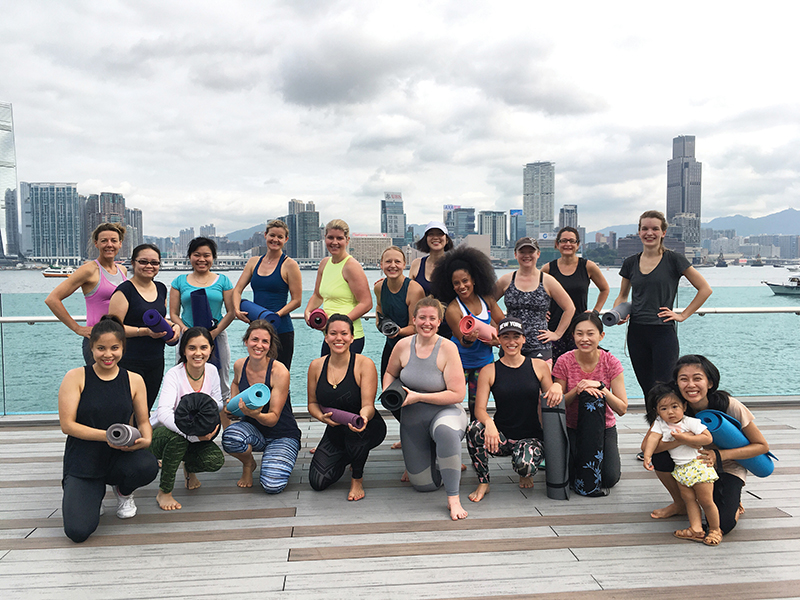
And so how does Tanner believe that we can foster a more positive body image through exercise? “Accepting that everyone is different, acknowledging that the body is amazing in its complexity and being grateful you are alive. Trying not to think of your body as ‘good’ or ‘bad’ but knowing that if there is anything about it you want to change, that it is achievable and you have the power to do so. Finally, knowing that your worth as a person and the appearance of your physical body are not connected.”
Interview: Lyndsey Gormley
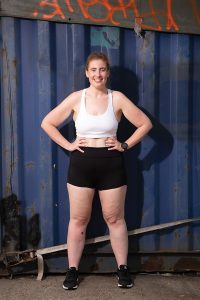
Originally from the UK, Lyndsey is an educator and keen trail runner who rediscovered her love of fitness by participating in the Women’s Five programme.
“When I was younger I used to play rugby and even tried cricket for a little while, and although I enjoyed exercise I never felt there was space for me. Not being naturally athletic meant that I was left out of a lot of team sports. Nobody wanted the fat girl on their team.
As I got older I became your typical “fair-weather gym bunny.” I would feel pressured to lose weight, hit the gym and post about it in social media before quitting. I could never stick to it because I wasn’t there to celebrate my body, I was there out of shame – I was there to shrink myself.
Finally I was persuaded by a friend to sign up to Women’s Five and it changed my life. I was at a really low point in my life and I hadn’t exercised in years, but within ten days I’d signed up and ran my first 5k. Suddenly I had a community that believed in me, even if I didn’t believe in myself.
I’ve been told that I’m “fitter than I look” which isn’t true, we just have a perverse perception on what health and fitness looks like. Health is a result of behaviours that are independent of weight and encompasses so much more than the number on a scale.
I have experienced so much unsolicited advice and fatphobia in Hong Kong; the culture here seems to be that bodies are open for discussion and that’s not true. I don’t care if you think running will make my calves “manly” or if you want to “compliment” me on my weight loss – just assume that my body is not your business.
We tie so much morality to the size of our clothing but the fact of the matter is you cannot look at a person and know whether or not they are healthy.
All bodies are good bodies and I am a huge advocate for the Health at Every Size Movement (HAES). You deserve to move your body in a way that feels good to you.
I enjoy seeing what my body is capable of. I grew up believing that my body wasn’t good enough. But it has achieved more than I ever thought possible and I want to continue to challenge it and see where it can take me next.”
Lyndsey’s training schedule:
Monday: 30-minute Swim or Yoga
Tuesday: 1 hour strength training
Wednesday: 1 hour run
Thursday: 1 hour strength training
Friday: 30-minutes Swim or Yoga
Saturday: Long Run
Sunday: Track/speed work
Interview: Steph Ng
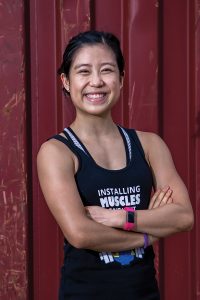
At just 21 years of age, Psychology student and CrossFit enthusiast Steph Ng is an eating disorder survivor who now advocates for positive body image via her website and podcast, Body Banter.
“During my recovery from an eating disorder, I realised that the lack of honest, open conversation about body image, and mental health issues in general, contributed to my difficulties in recognising and seeking help for my illness.
Specifically, body shaming and diet culture was normalised to the point that I thought it was part of being a woman to constantly yearn for a thinner body. I had no idea that I was displaying dangerous symptoms of an eating disorder.
Why did I feel pressured to starve myself? Why did I feel like my worth was defined by my weight? It was only after I learned to ask these questions that I realized that I was living a miserable life only to please the faceless powers of diet culture. They definitely didn’t care about me, so why was I caring so much about them?
I founded Body Banter two years ago, with the idea that encouraging more people to speak openly about their experiences with body image issues would not only raise awareness, but also allow people to feel less alone.
Changing my perspective on fitness played a major role in my recovery. When I first joined my CrossFit gym, I had physically recovered from my eating disorder, but was still struggling quite a lot mentally. I still saw exercise as a method of compensation and punishment, and felt that the purpose of exercising was to burn more calories.
My recovery has been a process of learning to see fitness as a wonderful component – but not the absolute purpose of my life.
Health is not a size, and everyone’s journey to finding their best self is unique.”
Steph’s training schedule:
Five days per week of weightlifting, gymnastics and metabolic conditioning; two days of rest


